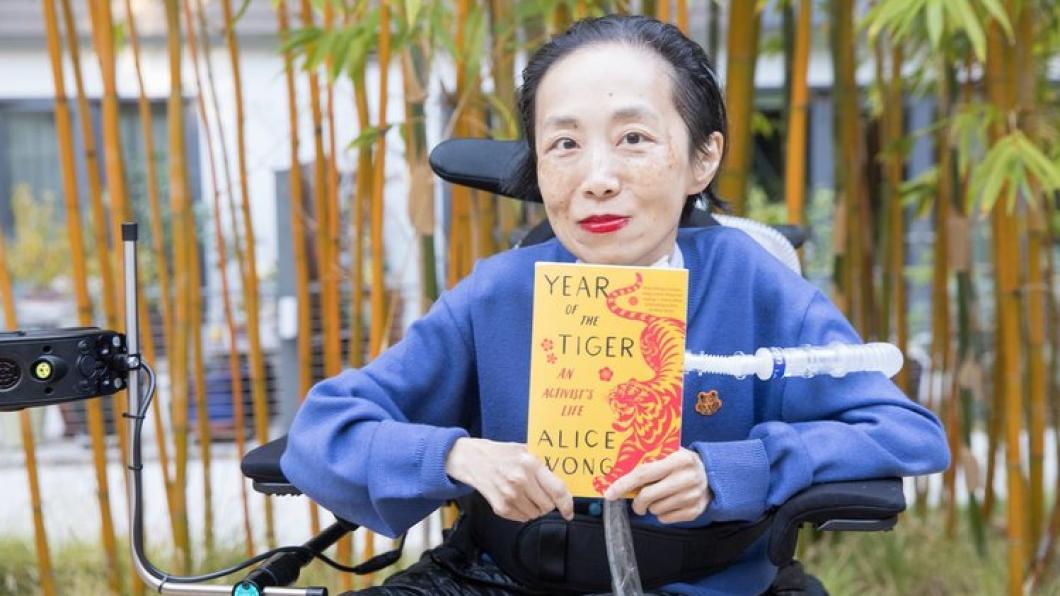
Alice Wong taught us how to love radical bodies
By Louise Kinross
I saw a post that said American disability activist Alice Wong had died on Friday and I thought it was a scam.
Because I will always associate Wong with this image of herself using her new ventilator after a 2022 medical crisis: “For now, every breath from my ventilator is a ferocious feline roar of defiance and joy.”
But I was wrong. Wong died in hospital in San Francisco, of an infection, at age 51. Her friend Sandy Ho confirmed it, sharing this post Wong had written in the event of her death.
In her memoir Year of the Tiger: An Activist’s Life, she wrote about “having a loving relationship with a radical body.”
Wong was born in 1974, the Year of the Tiger, to Chinese immigrants living in Indianapolis. In her memoir, she draws on the attributes of tigers and domestic cats as a model for living well.
The American advocate had a form of muscular dystrophy that made walking exhausting but didn’t know how to push back against pressure from parents and clinicians. “I wish my adult self could have said this to my parents and doctors: “I am so… tired, guys. Please, I tried my best to humour and please you all. This walking shit ain’t worth it.”
At age seven, she moved from a walker to a manual wheelchair to an electric chair.
“The clouds parted, the disabled angels sang, and I took my rightful place on my motorized throne," she wrote. ”It was total liberation. I was in a comfortable position and, most important, in control… I could express myself through movement for the first time. It may seem ghastly to most nondisabled people to rejoice in the usage of a wheelchair, but I consider it part of my natural development as an autonomous human being.” She came to see it as an extension of her body, “a part of my personal space and sense of self.”
It's hard to think of someone who has done more for disability culture, community and rights than Wong. I first heard about her through her Disability Visibility Podcast, where she interviewed disabled people on everything from politics to fashion and film. I loved her logo, an image of Wong with her trademark Bi-Pap mask, purple sunglasses and red headphones.
She did this interview with BLOOM about her anthology Disability Visibility: First-Person Stories From the Twenty-first Century, a collection of personal essays by disabled authors.
Wong rejected values that underlie capitalism and individualism. "Life is not binary: healthy or unhealthy. disabled or nondisabled, low or high quality,” she said in this interview with Teen Vogue. “We can and should embrace vulnerability and interdependence and not see them as weaknesses."
And finally: "Productivity does not make a person inherently valuable."
When I told Wong how much I adored her new memoir, she snail mailed me a beautiful, personal signed bookplate. She was that kind of person.
Like this content? Sign up for our monthly BLOOM e-letter, follow BLOOM editor @LouiseKinross on X, or @louisekinross.bsky.social on Bluesky, or watch our A Family Like Mine video series.